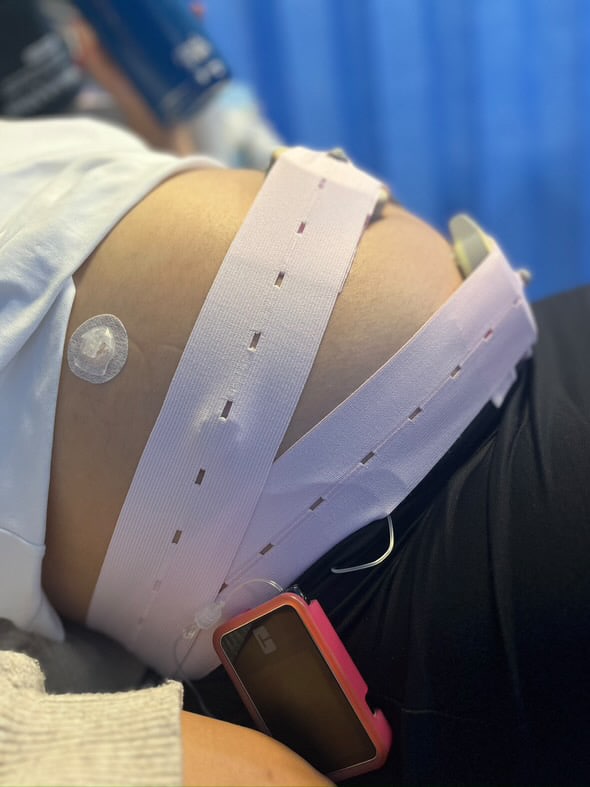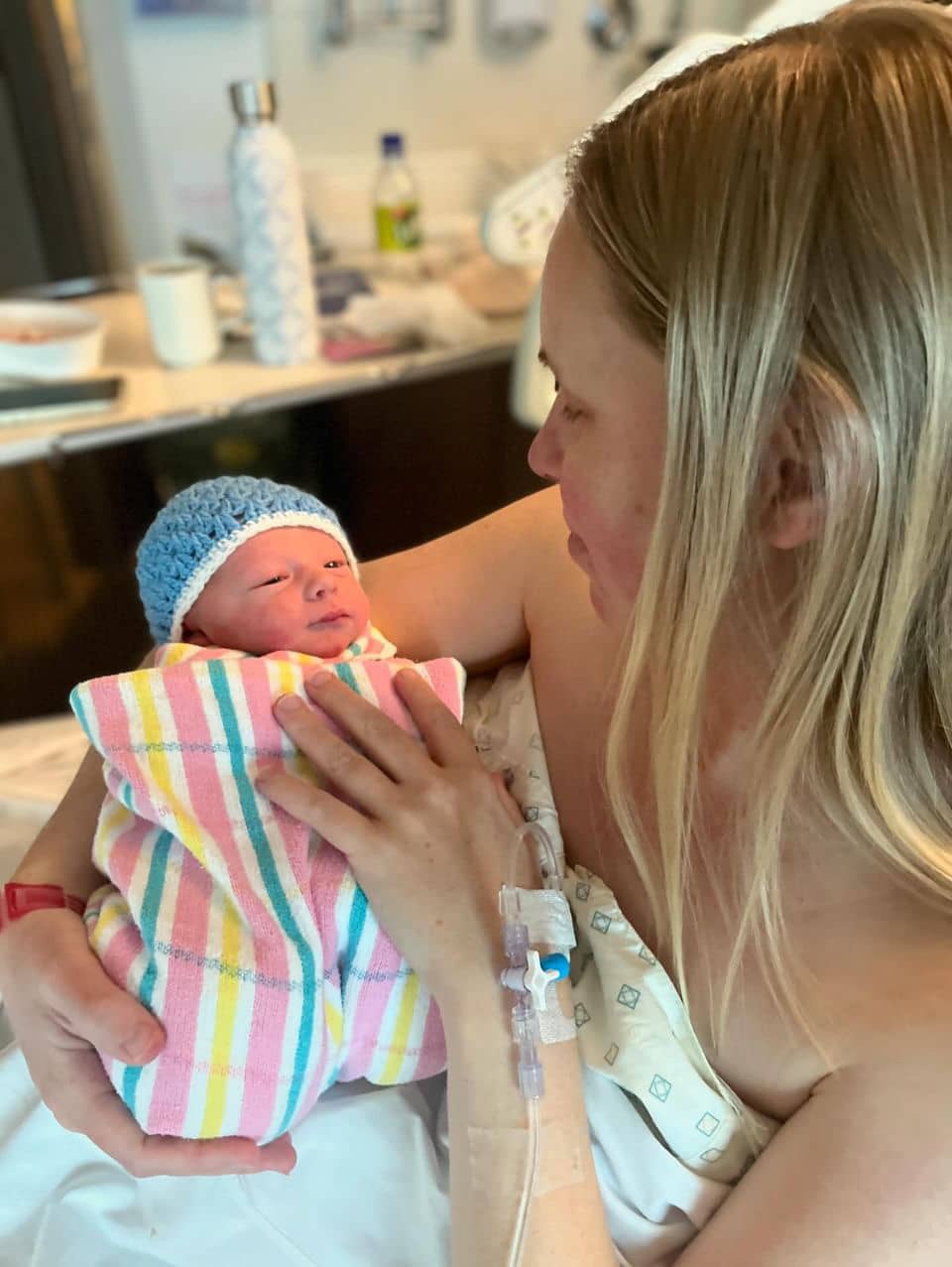Pregnancy Why are prenatal vitamins so important in pregnancy?
Why are prenatal vitamins so important in pregnancy?

Prenatal supplements are important in pregnancy to foster health and wellness for you and your growing baby. They provide the basic nutrients you need even when your diet is restricted by nausea and vomiting in pregnancy (NVP).
When you see your GP to confirm your pregnancy, they will give you a referral for a blood test to check your levels (namely iron and VitaminD) and scan for infections and a range of other health concerns. You can also expect them to insist you take a prenatal vitamin. However, prenatal vitamins vary greatly in quality so it’s best to read labels and really consider what you need and want before you buy.
When should I start taking a prenatal vitamin?
If you are planning a pregnancy or trying to conceive (TTC), it’s recommended that you start taking a prenatal supplement now; it’s never too early! If you have just discovered you’re pregnant, start taking one immediately as it’s incredibly beneficial for your changing body and growing baby.
What are prenatal vitamins?
Supplements should never replace a healthy, balanced diet. However, early pregnancy is a crucial time for certain vitamins and minerals because they assist your baby’s critical development which occurs in the first 12 weeks of pregnancy. Prenatal supplements are designed to fill common nutritional gaps for pregnant people.
What are the most important ingredients in a prenatal vitamin?
The most important nutrients to supplement in pregnancy include:
Methyl Folate / Folic Acid : this is the most important supplement to take in pre-conception and pregnancy as it reduces the risk of neural tube defects (defects of the fetal brain and spine). Some health professionals recommend that all sexually active women increase their intake of folate (400 mcg a day is recommended in pregnancy), considering that almost half of all pregnancies are unplanned. Folate is also known as vitamin B9 and it’s naturally found in green, leafy vegetables such as spinach and kale, as well as legumes and avocados. However, you would have to eat significant quantities of vegetables to reach your folate requirements in early pregnancy, hence the practicality and efficiency of a quality prenatal supplement.
The synthetic form of folate is called folic acid which is found in many supplements and is added to fortified foods. However, some research suggests that up to 1 in 3 women can’t absorb it (those with the MTHFR gene). Methylfolate is a more bioavailable form (which means your body can easily absorb and use it). Iron is also commonly included in prenatal vitamins, alongside vitamin D, calcium and vitamin B12, which is particularly important for vegans or vegetarians.
Vitamin D : essential for immunity, mental health and longevity, vitamin D helps to maintain your muscle and bone strength, assists with the absorption of calcium and helps your baby develop strong bones, too. Over 50 percent of Australian women have some level of Vitamin D deficiency and while exposure to sunlight is beneficial, in pregnancy you may be recommended a supplement by your GP as healthy levels of Vitamin D may reduce the risk of preeclampsia, gestational diabetes, low birth weight and the risk of postpartum hemorrhage.
Iron : your GP will test your iron levels at your first appointment and your levels will be monitored throughout pregnancy as severe iron deficiency has been associated with reduced tolerance of blood loss at birth. Reports suggest that between 10 to 20 percent of pregnant Australian women experience iron deficiency. Iron supplements commonly lead to stomach upsets and constipation, which isn’t ideal as it places extra strain on your digestive system which is already sluggish because of the hormone progesterone. You also want to be mindful of straining on the toilet as it isn’t beneficial for your pelvic floor health. If you’re experiencing constipation in pregnancy, increase your fluid and fibre intake, exercise every day and place your feet on a footstool when you’re on the toilet so your knees are higher than your hips (this facilitates passive pushing). Kin’s Prenatal contains a patented form of iron that is easily carried unaffected through the intestine and into the target tissues.
DHA : Only 10 percent of Australian women of child-bearing age meet the recommended dietary DHA intake which is prevalent in some foods, namely fatty fish including salmon and sardines. During pregnancy you need at least 200 milligrams daily to support the development of your baby’s brain, eyes and nervous system. Studies also show that the recommended dose of DHA assists in preventing preterm labour, increases birth weight and supports postpartum mood.
Iodine : Pregnant and breastfeeding mothers are encouraged to take iodine supplements as it is an essential nutrient to make thyroid hormone which assists the baby’s brain development.
Categories
Related Products
-
Birth Meditations
$49.00Narrated by Sophie Walker, these soothing and informative meditations help you feel supported and confident around birth.
Get your copy of our Perineal Massage Guide in your inbox
Keep Reading
We think you might enjoy these articles

The Emergency C-Section Checklist You’ll Be Thankful You Had

Pre-existing Diabetes and Pregnancy: What You Need to Know

Harnessing the Power of Acupressure: A Natural Approach to Preparing for Birth

Thoughtful Christmas Gifts for your Pregnant Friend.

What is Pre-eclampsia?

Non-invasive Prenatal Testing (NIPT)
@AustralianBirthStories
Follow along with us
@AustralianBirthStories
Follow along with us
@AustralianBirthStories
Follow along with us
@AustralianBirthStories
Follow along with us
@AustralianBirthStories
Follow along with us
@AustralianBirthStories
Follow along with us
@AustralianBirthStories
Follow along with us
@AustralianBirthStories
Follow along with us
@AustralianBirthStories
Follow along with us
@AustralianBirthStories
Follow along with us
@AustralianBirthStories
Follow along with us
@AustralianBirthStories
Follow along with us


